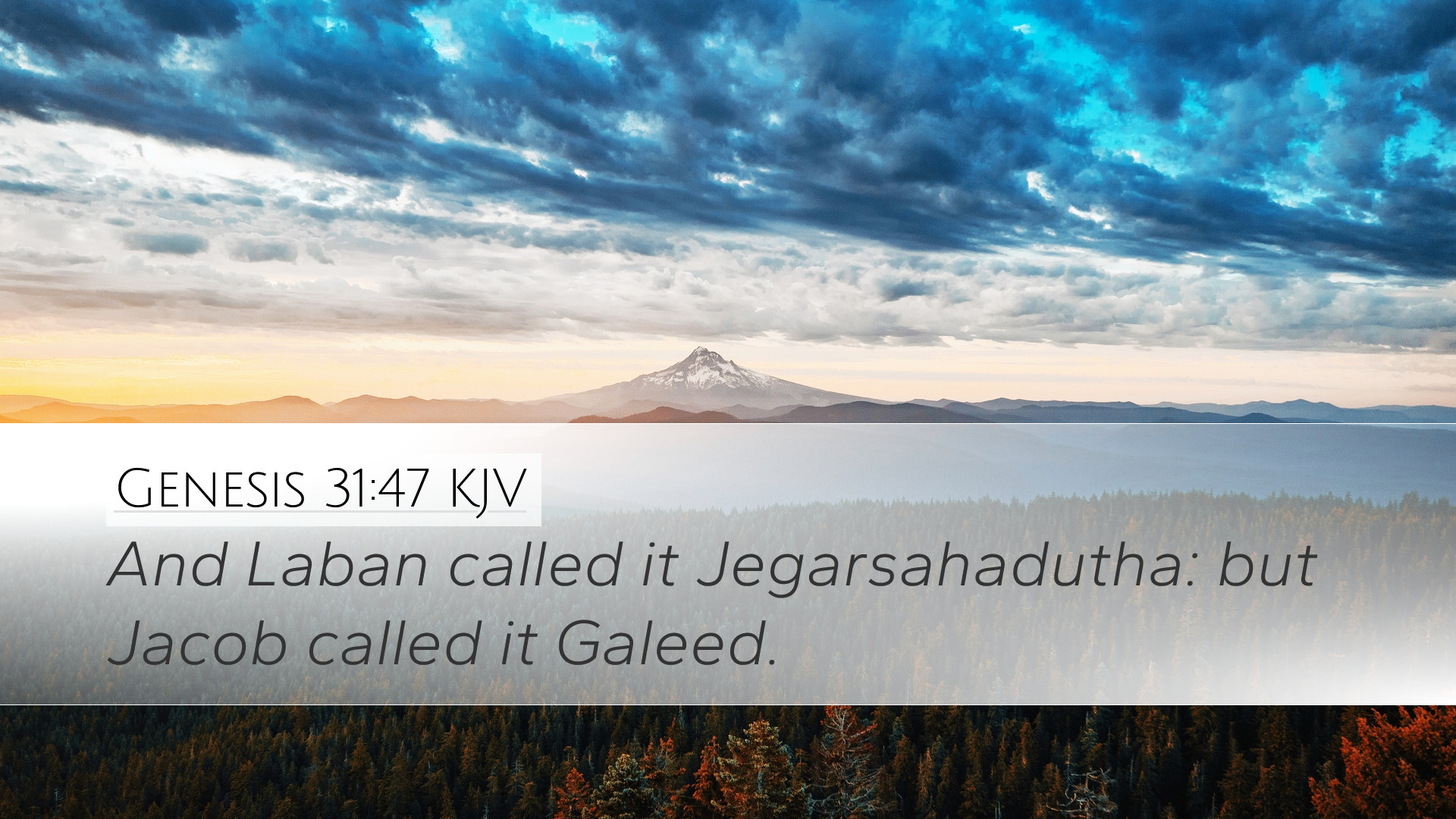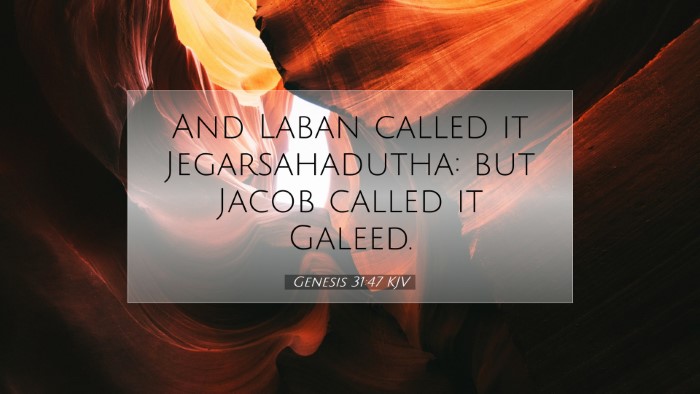Commentary on Genesis 31:47
Genesis 31:47 states, "And Laban called it Jegar-sahadutha: but Jacob called it Galeed." This passage represents a significant moment in the relationship between Laban and Jacob, emphasizing themes of covenant, boundaries, and testimony.
1. Contextual Background
In order to fully understand this verse, one must consider the broader narrative of Genesis 31. Jacob has faced increasing tension with Laban, who has changed his wages multiple times and sought to take advantage of Jacob's labor. After receiving revelation from God, Jacob decides to flee from Laban, leading to a confrontation between the two men.
2. Significance of the Names
The names assigned to the heap of stones—Jegar-sahadutha by Laban and Galeed by Jacob—are crucial to grasping the meaning behind this event. Both names signify a witness or testimony.
- Jegar-sahadutha: This Aramaic name means 'the heap of witness' or 'the witness heap.' Laban, in calling the mound this name, invoked a sense of legal protection and binding agreement.
- Galeed: The Hebrew equivalent, meaning 'the heap of witness,' signifies Jacob’s acknowledgment of this moment as a divine witness against any future transgressions by Laban.
3. The Interplay of Cultures
The use of two different languages—Aramaic by Laban and Hebrew by Jacob—demonstrates the cultural divide between the two men. This highlights the estrangement and evolving identity of Jacob as he is pivotal in the formation of the Israelite people.
4. Themes of Covenant and Boundaries
This event is not merely a geographical marker but serves as a spiritual testament of boundaries. The heap of stones, as a durable monument, symbolizes the covenant made between two parties regarding their respective territories and future interactions.
- Covenant Implications: This covenant indicates that both men are now bound to respect each other's rights and territories, providing for a form of peace that, in a sense, seeks to acknowledge God’s oversight in their affairs.
- Spiritual Boundaries: This act signifies deeper spiritual lessons—just as the heap of stones separates their lands, so does it symbolize the boundaries God sets in human relationships, emphasizing a need for respect and integrity.
5. Divine Witness
Both men seek divine acknowledgment in their covenant. By naming the heap, they call upon God as a witness to their agreement, reinforcing their understanding that God is aware of their dealings with one another.
- Matthew Henry's Insight: Henry closely examines this encounter, emphasizing that the heap serves as a reminder of God's justice and providence. Every attempt to harm Jacob would face divine scrutiny.
- Adam Clarke’s Interpretation: Clarke highlights the importance of Jacob’s firm stand against Laban’s deceit, illustrating how Jacob, now a patriarch, must steward his relationship according to God’s covenantal principles.
6. Practical Application for Modern Believers
This passage serves as a reminder to believers regarding the importance of integrity and accountability in human relationships. The concept of establishing boundaries under God’s witness is particularly relevant in today's world.
- Accountability in Relationships: Believers are called to build boundaries that honor God and respect others, much like the covenant established between Jacob and Laban.
- God as Witness: Just as Jacob and Laban recognized God in their agreement, Christians today are invited to recognize God’s sovereignty in their interactions with others, knowing He is a witness to their lives.
Conclusion
Genesis 31:47 captures a pivotal moment in the narrative of Jacob and Laban. Through the names given, the cultural implications, and the establishment of a covenant, this verse invites deeper reflections on divine witness, boundaries, and the importance of integrity in relationships. It serves as a testament to the enduring relevance of biblical principles in shaping the lives of believers today.


